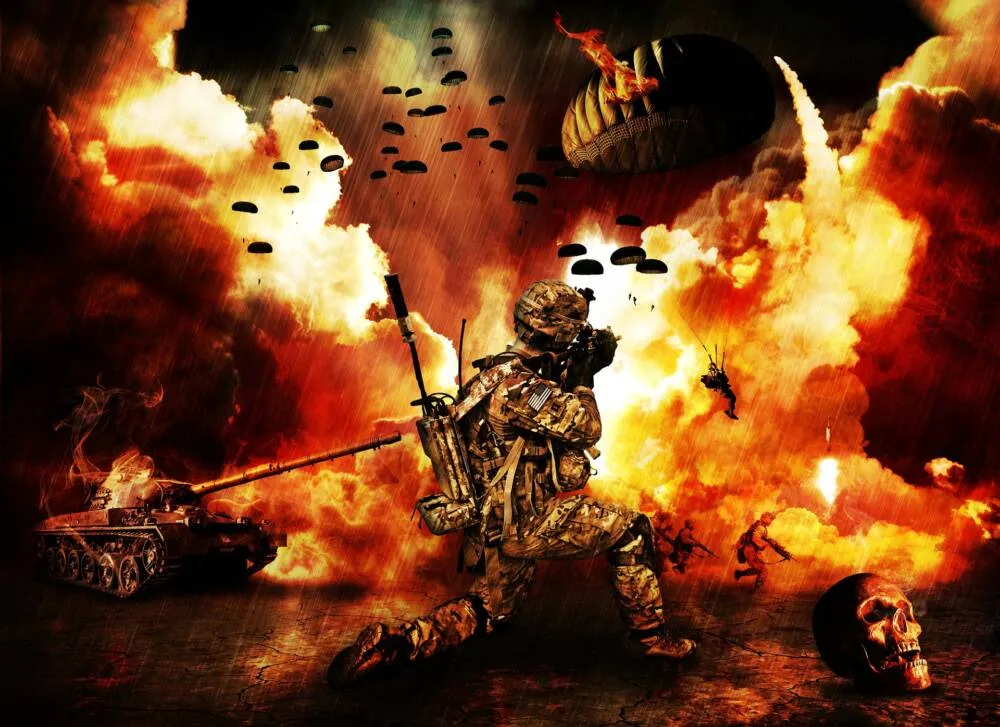.
While the use of force between states is prohibited in international law under Art. 2 sec. 4 of the United Nations Charter, there are currently over a hundred armed conflicts in the world. The international law of war must ensure that they are conducted in the most humane manner possible.
It may seem paradoxical that something as fundamentally illegal as war needs to be regulated. But war is not anarchy, and parties to a conflict are still bound by international law. This is actually logical - even if a crime has been committed, the perpetrator cannot continue to break the law and go unpunished.
What exactly is the international law of war?
Despite the rather vague general purpose of preventing unnecessary suffering, humanitarian law, as defined by international law of war, is quite practical. For example, several countries have military manuals that detail the requirements of humanitarian law. They also provide practical guidance to armed forces when planning and executing operations
In addition to humanity, there are three fundamental principles in the international law of war: distinction, military necessity, and proportionality. According to the principle of distinction, methods of warfare and weapons must distinguish between civilian and military targets. This applies to both people and objects. The use of force must be strictly militarily necessary – you can do what is necessary to achieve military goals, but no more. Moreover, the use of force must always be proportionate - any suffering of the civilian population must be minimized.
Sources of humanitarian law
The rules of war are not a modern invention, but they have been around for as long as humans have been at war with each other. Modern humanitarian law dates back to the first Geneva Convention of 1864. Today we mainly refer to the four Geneva Conventions of 1949.
The war in 2023 rarely fades away like the world wars of the XNUMXth century. Over the years, the international law of war has therefore adapted to the development of warfare. For example, certain weapons and ammunition have been banned under separate conventions such as
cluster munitions i
chemical weapon .
Additional protocols to the Geneva Conventions were also adopted. Among other things, they strengthened the protection of civilians and extended humanitarian law to so-called non-international armed conflicts. The latter is particularly practical since most conflicts today are between non-state groups, with or without the involvement of state forces.
Who enforces the international law of war?
War crimes must be enforced primarily at the national level. However, this becomes difficult if a country cannot afford fair trials or is unwilling to prosecute violations of the international law of war. The latter often applies when the perpetrator is or was part of the state apparatus. In such cases, the case can often be dealt with by the International Criminal Court (ICC) or special courts such as the tribunals for Rwanda and Yugoslavia.
Does the international law of war work?
The war in Europe and the heavy media coverage of suffering and unrest make it easy to question the function of the international law of war. How effective is humanitarian law when Russia repeatedly targets Ukrainian civilians and illegal targets such as hospitals? In response to this, it is worth noting three things in particular.
First, war criminals often try to justify their crimes under the international laws of war. This indicates that humanitarian law enjoys a relatively high reputation, even among actors whose actions suggest otherwise.
Third, it is rare for the media to devote column space to the observance of the international law of war or for it to be disseminated on social media. The image presented to the public is therefore not necessarily a reflection of reality.
While examples of war crimes are unfortunately all too common, the likelihood is that compliance is much higher than violations. In any case, international law of war provides a vital minimum protection for both combatants and non-combatants in a conflict, and the alternative - no regulation - would not be better.
Norway is committed to the application and promotion of the International Law of War (MIW) at various levels. In this context, emphasis is placed on the protection of civilians during armed conflicts and on the protection of the rights of prisoners of war. Norway also works to prevent war crimes and combat impunity for such crimes.
The Kingdom of Norway is a signatory to many international agreements and protocols relating to MIW. Among others, such as the Hague Convention of 1907 and the Additional Protocols of 1977. Norway has also ratified the Statute of the International Criminal Court and the 2008 Convention on the Prohibition, Production, Stockpiling and Transfer of Anti-Personnel Mines and on their Destruction.
In conclusion, Norway is involved in the use and promotion of MIW in various fields, from military action to supporting international organizations. Norway adheres to the principles of the MIW and works to strengthen them internationally.



